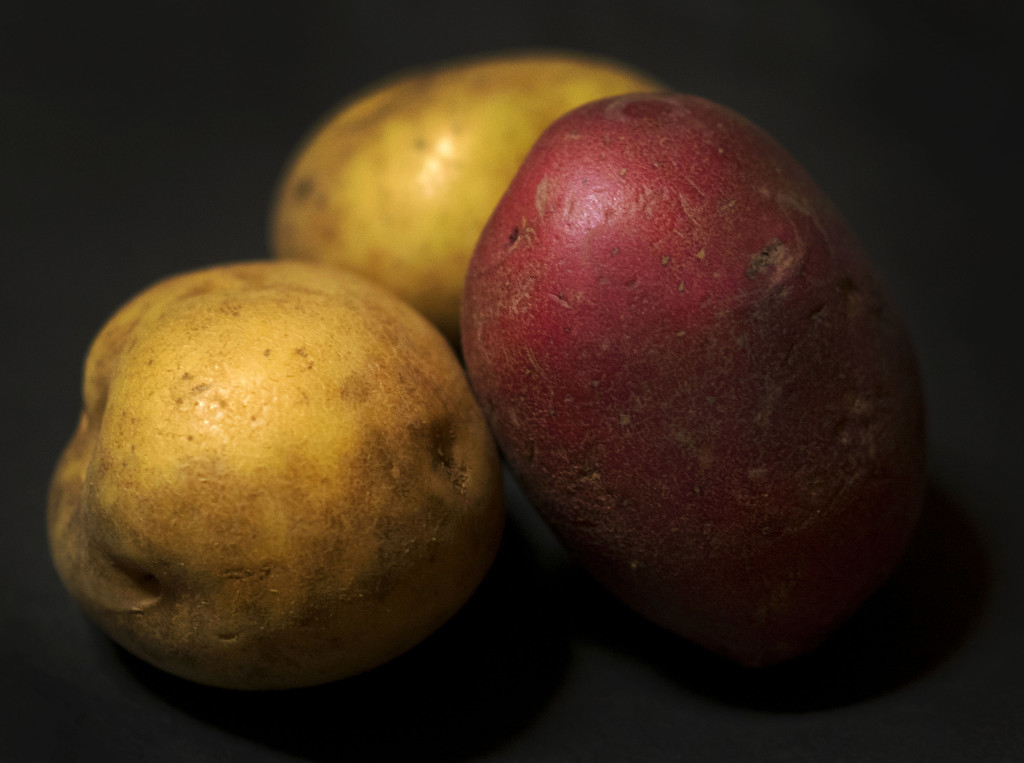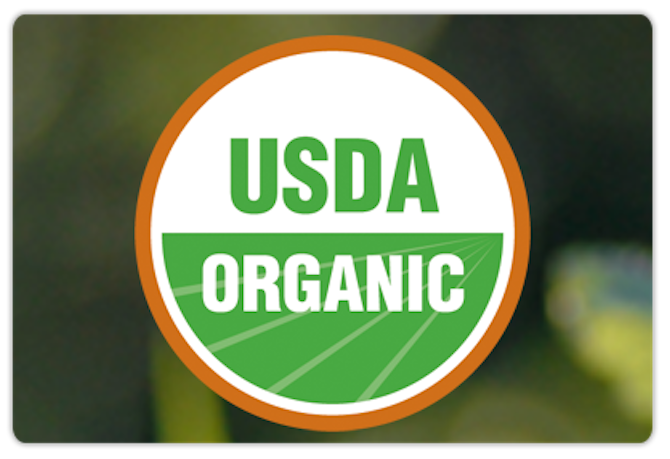A major buzz-word in the food industry recently is “GMO.” It was even speculated to become one of the biggest food trends of 2016.
So, what are GMOs? In a segment on his show, Jimmy Kimmel asked farmers market goers exactly what they thought a GMO was. Most people didn’t know that “GMO” stands for “genetically modified organism,” but they were quick to say “they’re bad for you.” But are they really bad for you? Some of the biggest “facts” on GMOs are actually misconceptions, and here’s why.
1. “They’re bad for you.”

Photo by Mischa Rajendiran
Actually, GMOs can be very good for you. For instance, The Golden Rice Project works on fortifying rice with vitamin A to combat vitamin A deficiency in Southeast Asia and Africa that is prevalent in the impoverished populations. Crops can also be engineered to boost nutritional value. They could even potentially be used to aid in some of the world’s food shortage problems.
2. “GMOs are in everything that’s not organic.”

GIF courtesy of giphy.com
There are common foods that contain GMOs that you may not be aware of, but GMOs aren’t in everything that’s not labeled “certified organic.” Yes, while many corn-based products may contain GM corn, but the majority of that corn is used to feed livestock.
Additionally, some GM crops that are approved by the FDA haven’t even made it to market yet due to widespread stigma against GMOs. There are currently only eight GM crops on the market—corn, soybean, papaya, canola, cotton, alfalfa, sugar beets, and summer squash. Genetically engineering papaya actually saved papayas from a virus that was spreading across Hawaii in the 1990s.
3. “GMOs cause cancer.”

GIF courtesy of giphy.com
Many studies on this show very weak (and statistically insignificant) relationships between GMOs and cancer, or there was a severe error that renders the results inaccurate. There are many speculations about the compound glyphosate and links to cancer, but glyphosate is also present on regular, non-engineered vegetables, as it is a commonly used herbicide. There is very little evidence that GMOs are correlated with higher cancer risks, though there are still studies being conducted.
4. “They’re unnatural.”

Photo by Andrea Leelike
Technically speaking, everything we eat is “genetically engineered”—at least, traditionally engineered. The corn we eat today is nowhere near the size (or shape) of natural corn. You may not be surprised to hear that broccoli and cauliflower are descended from the same plant, but did you know that cabbage, kohlrabi, Brussels sprouts, and kale are also from the same species, Brassica oleracea? Farmers have selected for certain traits, like the flowers in cauliflower, to increase the yield of our crops for thousands of years.
However, in terms of genetic engineering, they may be “unnatural,” but the technology is much more precise. When two plants are bred, all of their genes are mixed together completely randomly. On the other hand, when crops are engineered, a precise gene is inserted or removed to ensure that only that trait is affected.
5. “Organic foods are better than GMOs because they don’t use pesticides.”

Photo courtesy of the USDA
Though many people believe that buying organic produce is much better because organic farmers are restricted from using pesticides, that simply isn’t the case. Organic farmers are, however, restricted to using only certain pesticides established by the USDA, whether they are derived naturally or synthetically. Instead of focusing on buying organic, switch over to buying locally grown produce.


